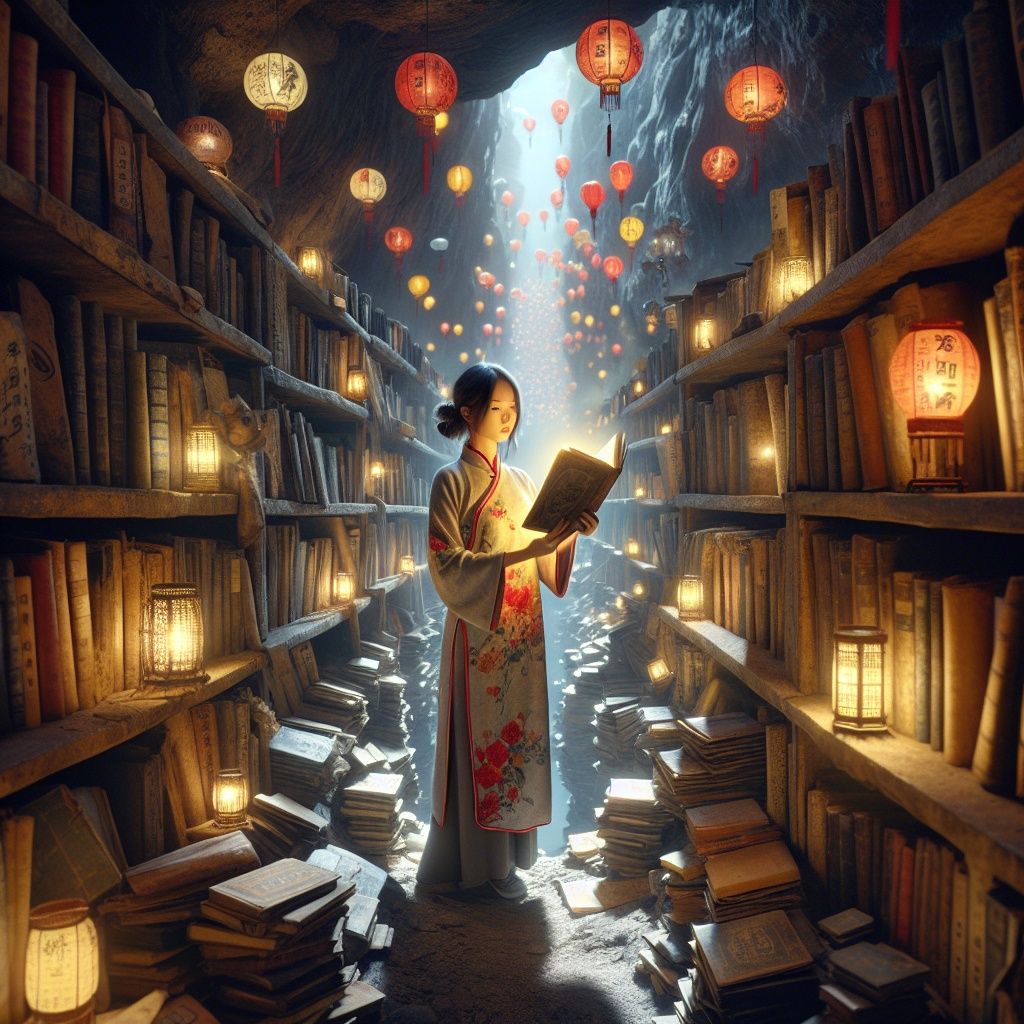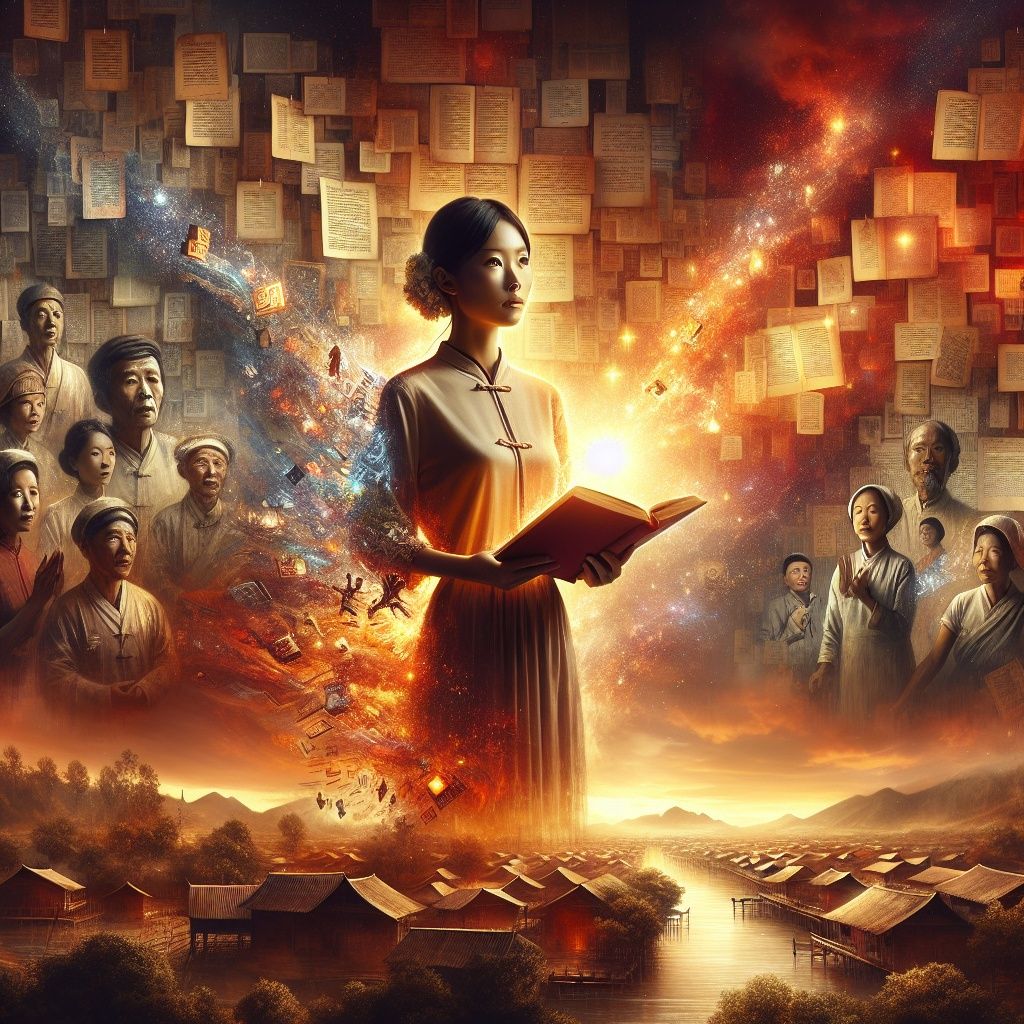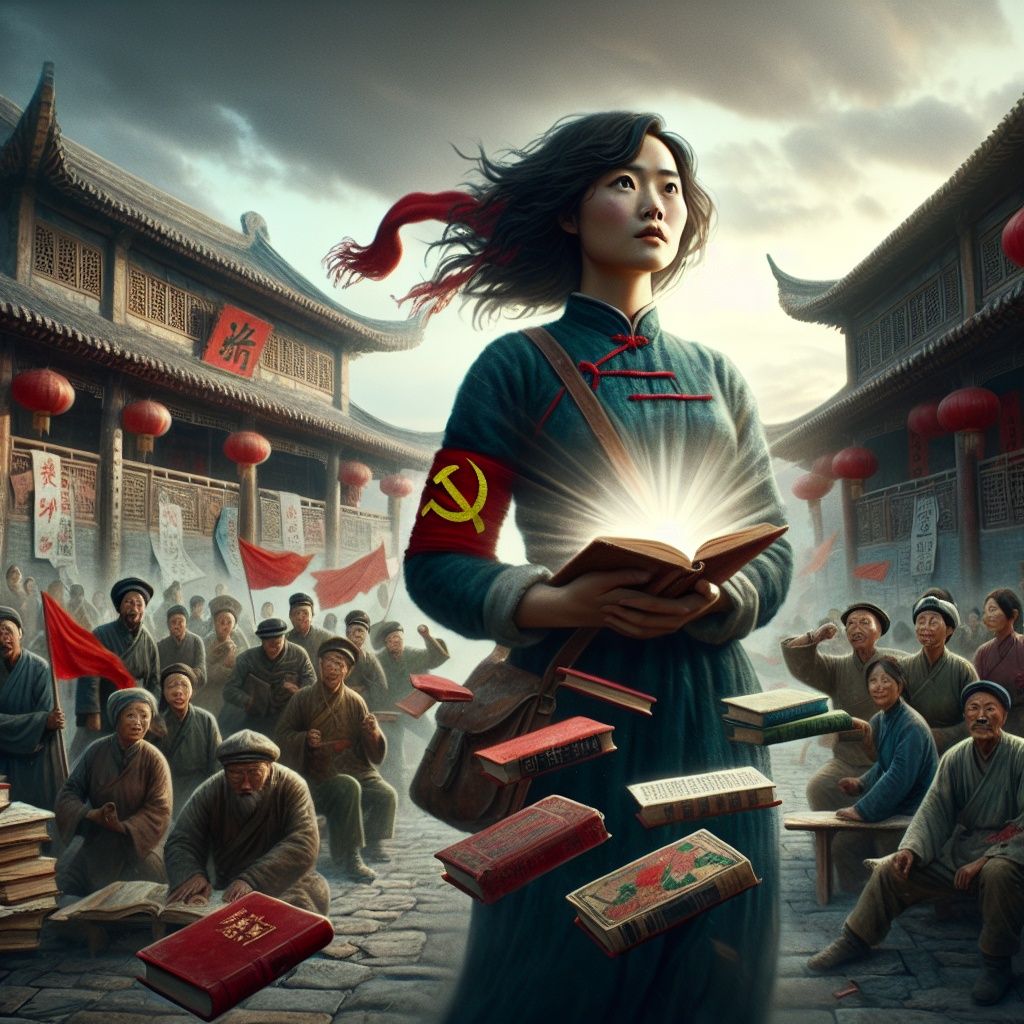5 Ianuarie 1967: The Girl with Books: Defying Mao's Cultural Revolution, a Heroine Emerges from the Shadows
In the heart of the turmoil that was shaking China, in a village forgotten by the world, lived a young woman named Mei. Her parents, dedicated teachers of traditions and classical literature, were among the first victims of the cultural purge campaign. One morning, the Red Guard entered their home, confiscating the old books and manuscripts, symbols of the "Four Olds" that Mao wanted to eradicate. Mei, hidden under the bed, watched helplessly as the flames consumed her ancestors' heritage.

After that day, her life changed forever. Her parents were taken to the central square, where they were humiliated and beaten in front of the crowd. Mei understood that she could no longer stand by. Despite the fear squeezing her heart, she decided to act. Every night, under the cover of darkness, Mei began to recover the untouched books and hide them in a cave near the village. During the day, she pretended to be a fervent follower of the new ideologies, singing slogans and participating in the Red Guard's meetings. But at night, in the solitude of the cave, Mei would secretly read the preserved works, learning about the history and culture that the regime wanted to erase. In those pages, she found solace and hope, a refuge from the chaos that surrounded her.

Years passed, and Mei grew into a strong and courageous woman. She came to be known in the village as the "Girl with Books," a rebellious spirit who dared to defy the regime. People came to her in secret, asking to read from the saved books, to learn about their forbidden past. Mei became a symbol of resistance, a beacon of light in the darkness of oppression. But the Red Guard was everywhere, and it wasn't long before rumors about the "Girl with Books" reached their ears. One night, as Mei was returning from the cave, she was caught. The guards interrogated her, demanding to know where the books were hidden. Nevertheless, Mei remained silent, refusing to betray the village's only hope. Days of torture and imprisonment followed, but Mei did not yield. Even in the darkest moments, the thought of her books and what they represented gave her the strength to resist. And then, when no one expected it, the Cultural Revolution came to an end. Mao died, and his regime of terror began to crumble. Mei was released and returned to her village, where she was welcomed as a hero. The saved books were brought to light, and her parents, who had miraculously survived, were reinstated. Together, they began to rebuild what had been destroyed, to heal the wounds opened by years of fear and repression.

Mei's story became a legend, a testament to the courage and power of the human spirit in the face of adversity. It was a living memory of everything the Cultural Revolution tried to destroy, but also proof that, in the end, humanity and culture cannot be erased.

After that day, her life changed forever. Her parents were taken to the central square, where they were humiliated and beaten in front of the crowd. Mei understood that she could no longer stand by. Despite the fear squeezing her heart, she decided to act. Every night, under the cover of darkness, Mei began to recover the untouched books and hide them in a cave near the village. During the day, she pretended to be a fervent follower of the new ideologies, singing slogans and participating in the Red Guard's meetings. But at night, in the solitude of the cave, Mei would secretly read the preserved works, learning about the history and culture that the regime wanted to erase. In those pages, she found solace and hope, a refuge from the chaos that surrounded her.

Years passed, and Mei grew into a strong and courageous woman. She came to be known in the village as the "Girl with Books," a rebellious spirit who dared to defy the regime. People came to her in secret, asking to read from the saved books, to learn about their forbidden past. Mei became a symbol of resistance, a beacon of light in the darkness of oppression. But the Red Guard was everywhere, and it wasn't long before rumors about the "Girl with Books" reached their ears. One night, as Mei was returning from the cave, she was caught. The guards interrogated her, demanding to know where the books were hidden. Nevertheless, Mei remained silent, refusing to betray the village's only hope. Days of torture and imprisonment followed, but Mei did not yield. Even in the darkest moments, the thought of her books and what they represented gave her the strength to resist. And then, when no one expected it, the Cultural Revolution came to an end. Mao died, and his regime of terror began to crumble. Mei was released and returned to her village, where she was welcomed as a hero. The saved books were brought to light, and her parents, who had miraculously survived, were reinstated. Together, they began to rebuild what had been destroyed, to heal the wounds opened by years of fear and repression.

Mei's story became a legend, a testament to the courage and power of the human spirit in the face of adversity. It was a living memory of everything the Cultural Revolution tried to destroy, but also proof that, in the end, humanity and culture cannot be erased.
The text to be translated is:
"The Cultural Revolution, also known as the Great Proletarian Cultural Revolution, was a sociopolitical movement in the People's Republic of China, launched by Mao Zedong in 1966 and lasted until his death in 1976. Its stated purpose was to remove capitalist and traditional elements from Chinese society to preserve Chinese communism. The Revolution marked Mao's return to power and was characterized by violence and chaos in Chinese society. Estimates of the number of deaths vary between 500,000 and 2,000,000. The Revolution had a devastating impact on the population, with persecutions, violence, and the destruction of cultural and religious heritage. In the end, the Cultural Revolution was rejected by the Chinese Communist Party, which recognized it was responsible for the most severe losses suffered by the country and party since the establishment of the People's Republic of China. This period had a significant impact on China and was marked by immense human and cultural suffering and losses."


Comments
Post a Comment